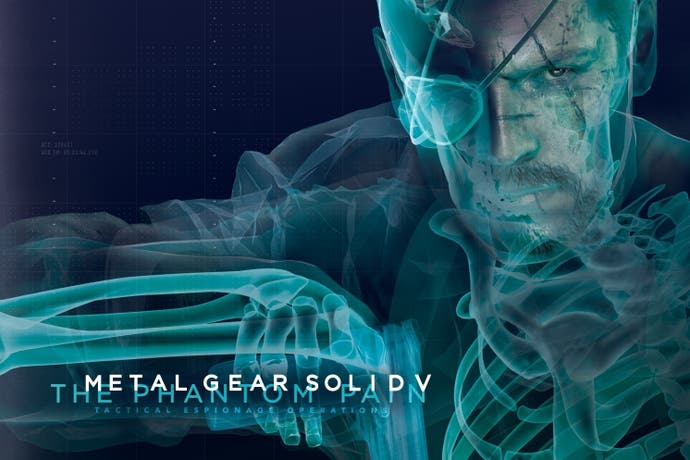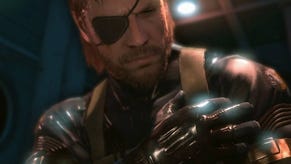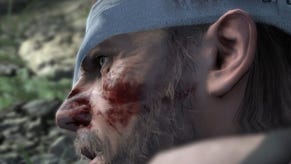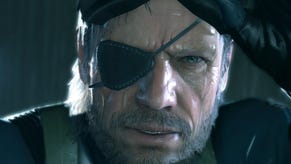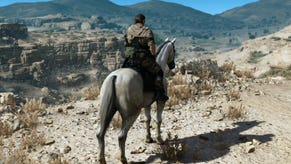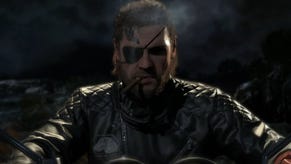The strange evolutions of Metal Gear Solid 5
Ground Zeroes introduces the cornerstone of a new type of Metal Gear - but are the foundations solid?
For a series once so keen on long-winded exposition, it's amazing that the reveal of a new Metal Gear Solid still manages to maintain so much enigma. The extended unfurling of Metal Gear Solid 5 has has been a masterpiece of misdirection and drawn-out teases, with a fictional Swede thrown in for good measure. It's been a campaign that's born the mark of Kojima Production's own love of twists, turns and deft wrong-footing of its audience, but it feels like one of the final, biggest shocks was saved for last. Sitting down to watch a demo within Konami's Tokyo headquarters, it's soon clear that this isn't the Metal Gear Solid you've become familiar with over the past 15 years: this feels like something that shares the shadows with Ubisoft's Splinter Cell and Assassin's Creed games.
That much shouldn't come as a surprise, really. As much as Metal Gear Solid has walked a singular path, Hideo Kojima's series has often reflected his wider tastes as it's evolved slowly from a top-down 8-bit action game to an operatic sprawl of messy melodrama. At its heart there's been the familiar soft beat of linear stealth, but Metal Gear Solid 5 sees it breaking away from that formula for the first time to join the rank and file of the genre. This is no longer a series isolated from the wider world; it's now one that bears the smudged fingerprints of other games.
Kojima's never been shy about communicating an affection for western games and western culture, a passion made explicit with the recent opening of a Los Angeles arm of Kojima Productions. That new perspective and workforce brings something else, too. Metal Gear Solid 5 is shooting for global superstardom, and for its place on the main stage alongside Assassin's Creed, Grand Theft Auto and Elder Scrolls.
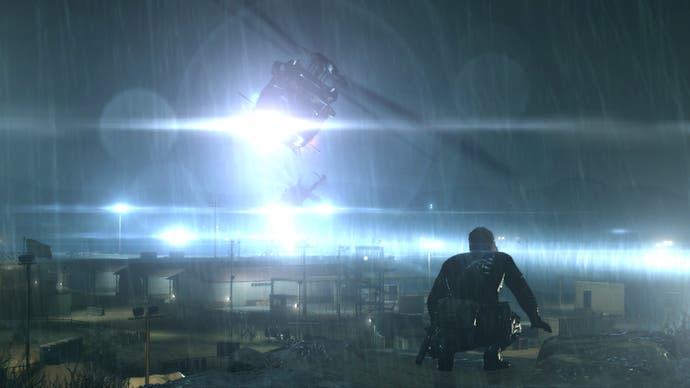
It's a transition that is being made gradually in order to soothe the shock. Metal Gear Solid 5 will come in two parts. Ground Zeroes will act as a preface, a short demonstration of Kojima Productions' new open-world philosophy that follows Big Boss a year after the PSP's Peace Walker and nine years before the events of the more substantial part, The Phantom Pain. "Ground Zeroes is a gentle introduction to that world," Kojima says as he introduces the live demo. "It's sort of like a tutorial, where you can enjoy the open world on a small scale but where it's still a more traditional Metal Gear game."
The area presented in Ground Zeroes is some 300 times smaller than the Phantom Pain's playground, but it's perfectly indicative of what kind of toys we can expect to play with. A military base surrounded by craggy cliff-faces, it's full of pools of dark and light for Big Boss to lose himself in. In The Phantom Pain, it's light that will be subject to a dynamic weather system, though in the more restrictive Ground Zeroes it's fixed, with missions taking place either by day or by night. It's also light that's got a nasty habit of thinning out into an obnoxious strip of Abrams-esque lens flare - a symptom of the new studio's proximity to Hollywood, perhaps, but also one that tells of Metal Gear Solid 5's new approach to stealth.
When that light shines in your eyes it's a shorthand to let you know you're in danger, and it's one of several smoothed-off edges that make Metal Gear Solid 5 more approachable - though it perhaps loses a little of its identity in the process. Big Boss is a more lithe avatar, even if he still walks around as if suffering from chronic back pain, and he's got plenty more in common with his ageing counterpart Sam Fisher. Enemies can be tagged, allowing you to keep a tab on their whereabouts - so while the more traditional map and radar have been relegated to a PDA, they're replaced with a system that's more readily readable.
That's not the only concession being made. When you're first spotted in stealth mode, there's a brief window of slow-motion in which you can neutralise the enemy before they can alert anyone else. It's a slick brand of stealth, and understandably there have been reservations from series' fans. They're not entirely alone.
"One thing, for sure, is that we've tried to make this game as friendly as possible to people who are used to playing other games," Kojima tells us after the demo, when asked about the creeping influence of the likes of Splinter Cell. "That's certainly true. With that said, the high-speed camera, the slow-motion camera, the tagging system, these sorts of gimmicks, I didn't really like them very much at first. I didn't want to put them in the game."
They're there, Kojima says, as a byproduct of the new direction that he's taken Metal Gear Solid. "Once I tried this open-world approach, where you're able to be spotted by enemies pretty much 360 degrees around you, without those kind of elements the gameplay was pretty much impossible to implement. Also, I wanted as many people as possible to have a friendly experience with this game. The tagging system, the fact that you can ride different vehicles, the fact that you can crawl or go over walls, these are all new things we haven't done in the series so far."
Metal Gear Solid 5 is attacking its new open-world edict with some conviction, at least. The sense of unpredictability is highlighted in missions that re-purpose the playground, and while the over-arching objective remains the same - you must sneak in, obtain an item or target and then get to an extraction point where a helicopter will whisk you off to a Peace Walker-esque base hub - the action in-between varies wildly. There are light-footed silent raids, noisy firefights (which now seem a more viable option than ever before in the series) and the violent slapstick of well-thought out plans going messily wrong.
Thinking back to bungled runs on Sons of Liberty's oil tanker, or Snake Eater's jungle outposts, maybe it's not that different to classic Metal Gear Solid after all - only now it's delivered with the softer edges of contemporary action games. "Through these kind of gameplay mechanics, you can choose how to play your missions in the open world," says Kojima as he insists the series' spirit is intact. "That's the Metal Gear experience. That's what we want people to see. It's where the truly new Metal Gear experience in this game lies. Through playing these missions, each player will experience a different story that they'll create in their own mind."
Kojima's own story will take precedence, of course, and in the furore over some of its less savoury elements it feels like there's the same mischievous intent - and that pulling the strings behind it all is the same wily old fox who's always enjoyed toying with audience expectation. Elsewhere, though, it seems as if Kojima Productions is playing it straight, maybe for better and maybe for worse. But for a series that's always been keen on strong, directed stories, handing the reins over to the player and having faith in emergence could well be Metal Gear's most radical move since it gained the Solid suffix.
